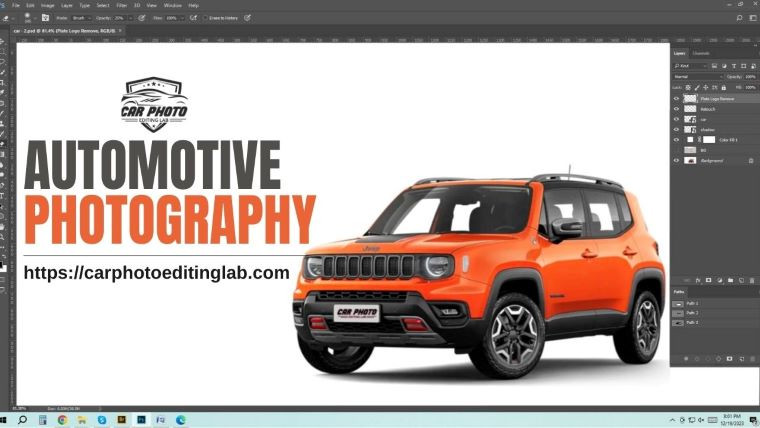-
Contact us with Whatsapp:
+8801734997063 -
Mail Us:
[email protected] -
Service Hours
24/7
How to choose the best vehicle for you

Feb 2024
- 26 Feb 2024
- Business Solution
- 0 Views
How to choose the best vehicle for you
In the vast landscape of automotive options, finding the ideal vehicle tailored to your needs can seem like navigating an intricate maze. However, armed with the right knowledge and considerations, the journey to selecting the perfect vehicle can become a streamlined and rewarding experience. Whether you're seeking a reliable daily commuter, a spacious family vehicle, or an adventurous off-road companion, understanding the key factors in choosing the best vehicle for you is paramount. This guide serves as your compass in this journey, offering insightful tips and considerations to help you make an informed decision. From assessing your specific requirements and setting a realistic budget to evaluating factors such as fuel efficiency, safety features, and long-term costs, each step is carefully crafted to empower you in your quest for automotive excellence. We'll explore the importance of test-driving multiple models, researching reliability ratings, and considering resale value to ensure your chosen vehicle aligns perfectly with your lifestyle and preferences. Join us as we embark on this expedition through the realm of automobiles, where informed decisions pave the way to finding not just a vehicle, but your perfect automotive companion. Let's embark together on this journey, where the destination isn't just a destination—it's a reflection of you.
Choosing the best vehicle for you involves considering various factors to ensure it aligns with your needs, preferences, and budget. Here are some steps to help you make the right choice:
Assess Your Needs
Assessing your needs is fundamental to finding the best vehicle for you. Start by analyzing your lifestyle, daily activities, and driving habits. Consider the primary purpose of the vehicle—is it for commuting, family trips, or leisure activities? If you frequently transport large items or passengers, prioritize vehicles with ample cargo space or seating capacity. Additionally, evaluate the terrain and weather conditions you typically encounter to determine if features like all-wheel drive or high ground clearance are necessary. By understanding your requirements and preferences, you can narrow down the options to vehicles that best suit your lifestyle and provide the functionality you need.
Set Your Budget
Setting a budget is essential to prevent overspending and ensure financial stability. Begin by determining the total amount you're willing to spend on purchasing and owning the vehicle. Factor in upfront costs such as the purchase price, taxes, and registration fees. Additionally, consider ongoing expenses like insurance, maintenance, fuel, and depreciation. Be realistic about what you can afford, taking into account your income, savings, and other financial obligations. Remember to leave room in your budget for unexpected expenses or emergencies. By establishing a clear budget, you can focus your search on vehicles that fall within your price range and avoid financial strain in the long run.
Consider Fuel Efficiency
Fuel efficiency plays a significant role in reducing operating costs and minimizing environmental impact. Evaluate the fuel economy ratings of different vehicles to determine their efficiency in city and highway driving conditions. Choose vehicles with higher miles per gallon (MPG) ratings to save money on fuel expenses over time. Consider alternative fuel options such as hybrid, plug-in hybrid, or electric vehicles for even greater fuel savings and reduced emissions. Keep in mind that fuel efficiency can vary depending on factors like vehicle size, engine type, and driving habits. By prioritizing fuel-efficient vehicles, you can lower your environmental footprint and enjoy long-term cost savings on fuel.
Evaluate Size and Space
Size and space considerations are crucial for ensuring comfort, practicality, and versatility in your vehicle. Evaluate the interior dimensions to ensure there's adequate legroom, headroom, and cargo space for your needs. Consider the number of passengers you typically transport and whether you need additional seating capacity for family members or friends. Assess the cargo area to determine if it can accommodate your everyday items, sports equipment, or luggage for road trips. Pay attention to the vehicle's exterior dimensions as well, especially if you have limited parking space or need to navigate narrow streets. By evaluating size and space requirements, you can choose a vehicle that offers the right balance of comfort, functionality, and maneuverability for your lifestyle.
Research Safety Features
When choosing the best vehicle for you, prioritizing safety features is paramount to protect yourself and your passengers on the road. Research the safety ratings and features of different vehicles, including crash test results from organizations like the National Highway Traffic Safety Administration (NHTSA) and the Insurance Institute for Highway Safety (IIHS). Look for advanced safety technologies such as automatic emergency braking, lane departure warning, adaptive cruise control, and blind-spot monitoring systems. Additionally, consider the structural integrity of the vehicle, including the presence of reinforced safety cages and airbag systems. By prioritizing safety features, you can minimize the risk of accidents and injuries and enjoy peace of mind while driving.
Test Drive
Before making a final decision, it's essential to test drive the vehicles you're considering to evaluate their performance, handling, and comfort firsthand. Schedule test drives at dealerships and take the opportunity to experience each vehicle in various driving conditions, including city streets, highways, and rough terrain if applicable. Pay attention to factors such as acceleration, braking responsiveness, steering feel, and ride quality. Assess the comfort and ergonomics of the seating, controls, and cabin layout to ensure they meet your preferences. Use the test drive as an opportunity to ask questions and gather information from the salesperson about the vehicle's features, options, and available trim levels. By test driving multiple vehicles, you can compare their performance and determine which one best suits your driving style and preferences.
Consider Long-Term Costs
While the upfront cost of purchasing a vehicle is important, it's equally crucial to consider the long-term costs associated with ownership. Evaluate factors such as fuel economy, maintenance expenses, insurance premiums, and depreciation rates to estimate the total cost of ownership over time. Research the reliability ratings and expected maintenance schedules for different makes and models to anticipate potential repair costs and maintenance requirements. Additionally, consider the availability and cost of replacement parts and accessories for the vehicle. By considering long-term costs, you can make a more informed decision and choose a vehicle that fits your budget and lifestyle without unexpected financial burdens down the road.
Think About Resale Value
Resale value is an often-overlooked factor when choosing a vehicle but can significantly impact your ownership experience and financial well-being. Research the depreciation rates and resale values of different vehicles to gauge their long-term value retention. Generally, vehicles from reputable brands with high demand and strong reliability tend to retain their value better over time. Consider factors such as market trends, consumer preferences, and anticipated future resale demand for the vehicle. Additionally, choose popular colors and configurations that appeal to a broad range of buyers to maximize resale value. By thinking about resale value upfront, you can make a smart investment and potentially save money when it comes time to sell or trade in your vehicle.
Explore Financing Options
When choosing the best vehicle for you, exploring financing options is essential to ensure you can afford the vehicle within your budget constraints. Research various financing options, including loans from banks, credit unions, or dealership financing. Compare interest rates, loan terms, and down payment requirements to find the most favorable terms that fit your financial situation. Consider factors such as your credit score, income stability, and debt-to-income ratio when applying for financing. Additionally, calculate the total cost of the loan, including interest charges and fees, to determine the affordability of the monthly payments. By exploring financing options, you can secure a loan that meets your needs and allows you to purchase the vehicle with confidence.
Check Reviews and Ratings
Before making a decision, it's crucial to check reviews and ratings of the vehicles you're considering to gather insights from experts and real-world owners. Read reviews from automotive publications, websites, and forums to learn about the performance, reliability, and overall satisfaction of different makes and models. Pay attention to common issues, recalls, and owner complaints to identify any potential red flags or concerns. Additionally, check ratings from organizations like Consumer Reports, J.D. Power, and Kelley Blue Book for comprehensive evaluations of vehicle quality, dependability, and resale value. By checking reviews and ratings, you can make an informed decision and choose a vehicle that meets your expectations and standards of quality.
Consider Additional Features
When selecting the best vehicle for you, considering additional features and amenities can enhance your driving experience and satisfaction. Evaluate optional features such as infotainment systems, navigation, smartphone integration, and advanced driver assistance technologies. Determine which features are essential for your needs and preferences, and prioritize vehicles that offer them as standard or optional equipment. Consider convenience features such as power-operated doors, seats, and liftgates, as well as comfort amenities like heated and ventilated seats, dual-zone climate control, and panoramic sunroofs. Additionally, think about customization options such as exterior colors, interior trims, and accessory packages to personalize your vehicle to suit your style. By considering additional features, you can tailor the vehicle to your liking and enjoy enhanced comfort, convenience, and functionality on the road.
Think About Your Personal Preferences
Ultimately, choosing the best vehicle for you involves considering your personal preferences and tastes to find a vehicle that reflects your lifestyle and personality. Think about factors such as brand reputation, design aesthetics, and exterior styling that appeal to you. Consider whether you prefer a sporty sedan, a rugged SUV, or a versatile crossover based on your driving style and preferences. Evaluate interior features such as materials, finishes, and seating configurations to ensure they align with your comfort and convenience needs. Additionally, think about color choices, wheel designs, and trim levels that resonate with your personal taste and sense of style. By thinking about your personal preferences, you can select a vehicle that not only meets your practical needs but also brings joy and satisfaction every time you drive it.
























0 Comment